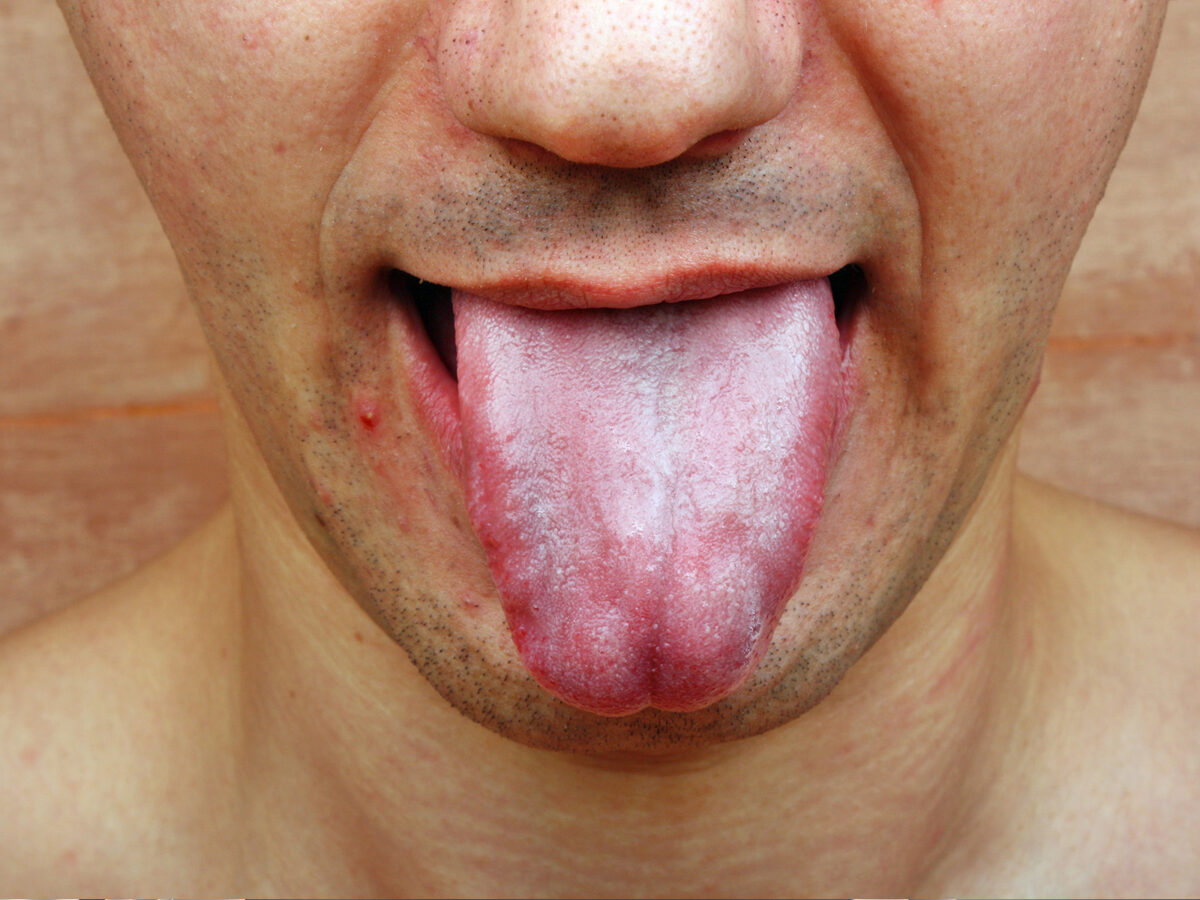Blog
Dental hygiene tips for healthy teeth & gums

Burning Tongue: 5 Common Causes & How To Treat
Tongue inflammation, or the sensation of a burning tongue, is a painful condition that can cause discomfort in your mouth. Some people liken this oral health issue to the feeling of burning their mouth with hot coffee. Symptoms include a tingling sensation on the tongue, roof of the mouth, gums, and inside the cheeks.
What exactly is this tongue-burning sensation, and what are its types? The primary burning mouth sensation has no underlying conditions and doesn’t present with an abscess or other medical signs. The secondary type is associated with underlying conditions such as diabetes. It’s important to note that this condition is distinct from dry mouth. This article will address all your questions about burning tongue syndrome and provide guidance for relief.
Common Causes of Burning Tongue Syndrome
Dry Mouth: When your mouth lacks sufficient saliva, it results in a condition known as dry mouth or xerostomia. Several factors can trigger a burning tongue, including hormonal changes, medications, or issues with the salivary glands. Extreme dryness in the mouth often leads to a burning tongue sensation.
Nutritional Deficiencies: A lack of certain nutrients can lead to oral health issues. Vitamins like B and minerals such as iron and zinc are crucial in preventing burning tongue sensations. A balanced diet rich in healthy proteins can help stave off tongue inflammation.
Mouth Irritation: Acidic beverages high in sugar can cause mouth irritation, which, over time, can lead to a burning tongue. Additionally, consuming hot spicy foods, aggressive brushing, or excessive use of mouthwash can also irritate the mouth.
Medication Side Effects: Some medications, like antidepressants and ACE inhibitors, can contribute to the burning tongue sensation. These drugs can cause dryness, soreness, and tongue inflammation, leading to significant discomfort and other side effects.
Oral Conditions: Oral health issues, such as candidiasis or thrush (a fungal infection), can cause a burning tongue sensation. Similarly, a condition known as geographic tongue can result in an inflamed and painful tongue. While these conditions might be temporary, they require prompt medical attention.
Tips to Treat Tongue Inflammation
- Avoid foods or beverages that can irritate the mouth, including alcohol, chewing gum, smoking, tobacco, and acidic drinks like soda or coffee.
- Use pain relief medicines and saliva replacement products to alleviate tongue-burning symptoms.
- Consider taking Vitamin B or iron supplements to address deficiencies, which can also help relieve symptoms.
- Drink plenty of water and suck on ice chips. Chewing sugar-free gum can soothe the mouth and stimulate saliva production.
- Consult a medical professional for a proper diagnosis and treatment. They might prescribe medications like B vitamins, oral thrush treatments, or select antidepressants.
Diagnosis of Burning Tongue Triggers
To identify the causes of burning tongue symptoms, healthcare providers may conduct various tests based on the patient’s pain level and mouth condition. These tests can include allergy screenings, blood tests, imaging, and oral swabs. If no issues are identified in these tests, a tissue biopsy might be performed as a precautionary measure to rule out cancerous cells.
Final Thoughts
A burning tongue sensation can persist for months or even years without appropriate treatment. Medical professionals can help alleviate symptoms and treat inflammation in a matter of weeks or days. While home remedies might offer temporary relief, they are not a long-term solution.
A burning tongue is not only painful but also diminishes taste sensation. It’s especially common in postmenopausal women due to
